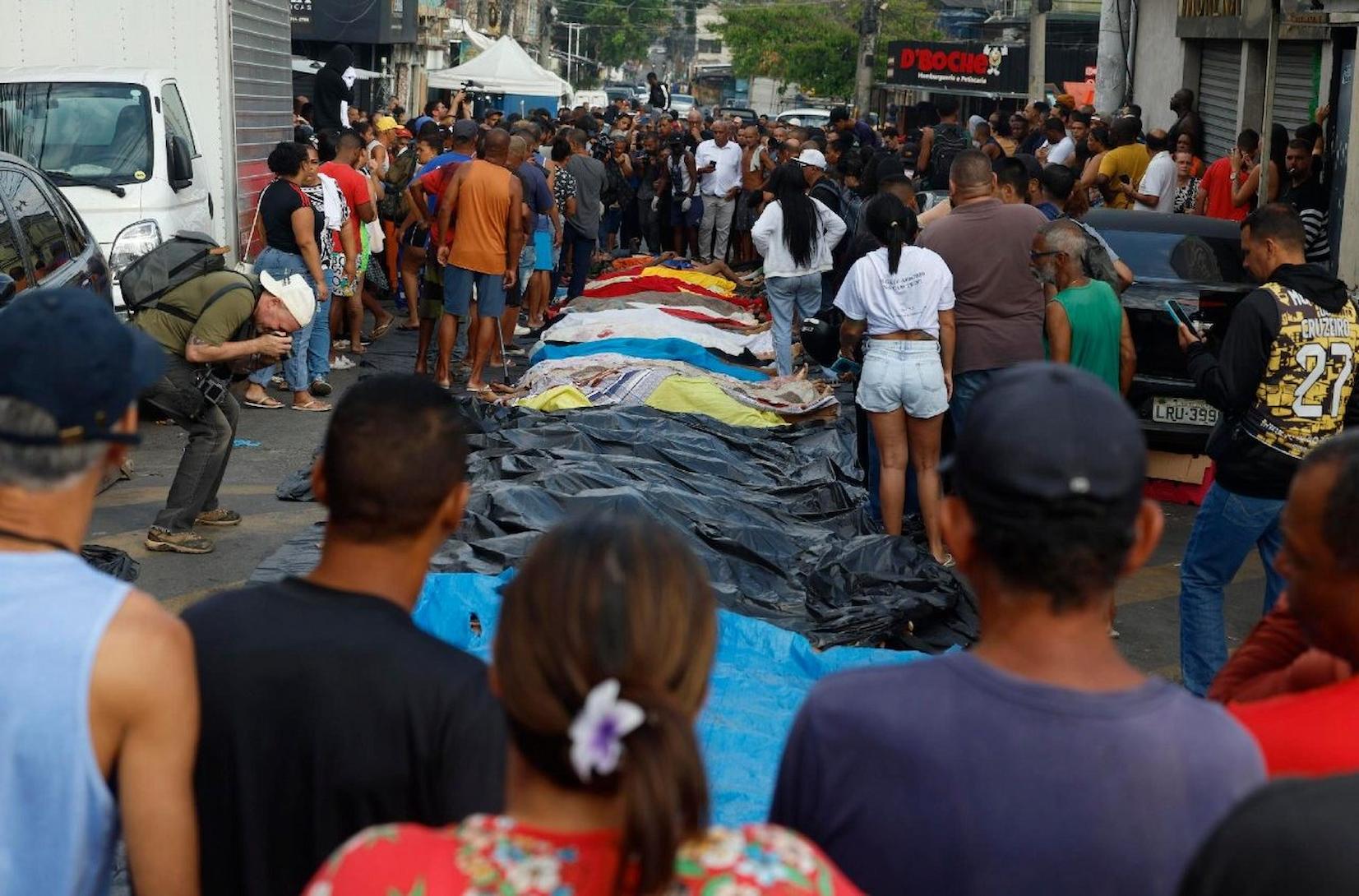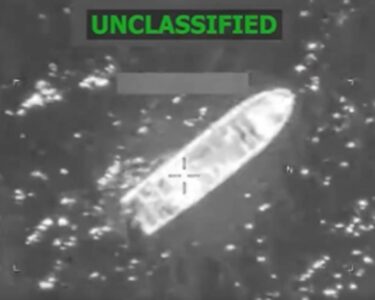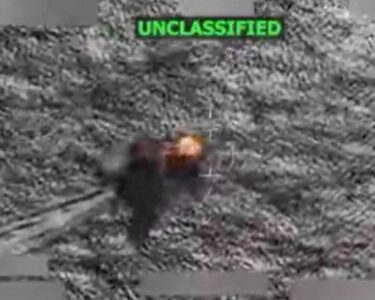From the mountains of Mexico to the rivers of the Amazon, organized crime has fused with politics, leaving behind a trail of blood, gold, and silence.
On a humid morning in Rio de Janeiro, the sound of helicopters drowns out the chatter of street vendors. Below, in the labyrinth of the favela, mothers pull their children indoors as armored police vehicles grind up the narrow alleys. By nightfall, more than a hundred people will be dead—victims of one of Brazil’s largest anti-drug raids in years. Officials call it a victory. Residents call it a massacre. The world, for the most part, looks away.
This is the new face of organized crime in Ibero-America: sprawling, transnational, and increasingly entangled with the state itself. From the jungles of Colombia to the ports of Ecuador, from the deserts of Mexico to the gold fields of Venezuela’s Amazonia, the region has become a chessboard where cartels, guerrillas, and governments play a deadly game. And behind it all lies a global demand for drugs and resources that shows no sign of slowing.
Mexico: The Cartel That Wouldn’t Die
In Culiacán, the capital of Sinaloa state, locals still whisper about the day the army tried to capture Ovidio Guzmán, son of Joaquín “El Chapo.” Within hours, cartel gunmen had turned the city into a war zone, forcing the government to retreat. “It was like the state didn’t exist,” recalls a shopkeeper who watched the firefight from behind a shuttered storefront. “Only the cartel gave the orders.”
The Sinaloa Cartel remains the most powerful criminal syndicate in the hemisphere. Its reach extends from the poppy fields of the Sierra Madre to the streets of Chicago and Madrid.
Even after El Chapo’s extradition, the cartel thrives, thanks to its decentralized structure and ruthless adaptability. Today, it is not just cocaine and methamphetamine—it is fentanyl, the synthetic opioid that has devastated American communities. The cartel’s chemists mix Chinese precursors into powders and pills that cross the border by the millions. For every overdose in Ohio or Pennsylvania, there is a profit margin in Sinaloa.
Across Latin America, the lines between state and cartel blur. In Rio’s favelas, in Colombia’s gold pits, in Venezuela’s military barracks, and in Ecuador’s prisons, the same empire thrives. It is an empire built on drugs and weapons, but sustained by global demand and international hypocrisy.
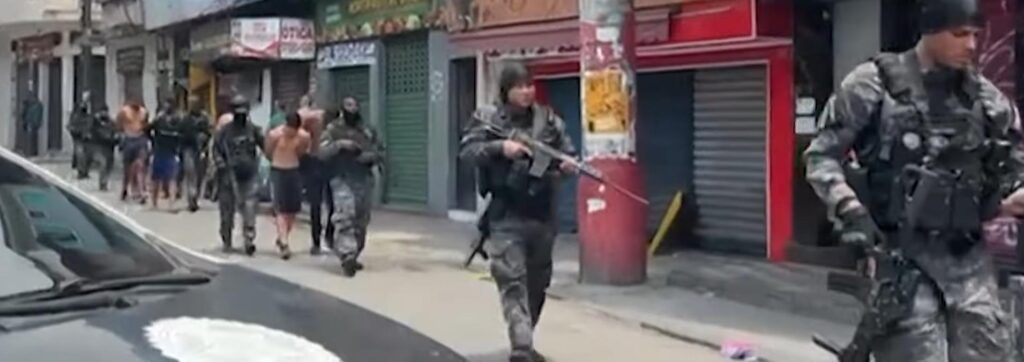
Colombia: Peace Without Peace
In Colombia’s Cauca region, the air smells of gasoline and mercury. Here, guerrilla dissidents and paramilitary groups run illegal gold mines that scar the landscape and poison rivers. “Gold is the new cocaine,” says a local activist, pointing to the armed men who guard the pits. “It funds the same warlords, but it destroys the land too.”
The 2016 peace deal with the FARC was supposed to end decades of conflict. Instead, splinter groups and the ELN filled the vacuum, controlling coca fields and smuggling routes. Violence against social leaders has surged. In remote villages, teachers and community organizers are gunned down for resisting the narco-economy.
The Colombian state, stretched thin and riddled with corruption, struggles to assert control. The war never ended; it simply changed shape.
Brazil: Death in the Favelas, Gold in the Amazon
In Rio, the favelas are war zones. Police raids, often backed by military units, leave dozens dead in single operations. Officials frame them as necessary strikes against the Comando Vermelho or the Primeiro Comando da Capital (PCC). But human rights groups argue the raids amount to collective punishment of the poor. “If this happened in a wealthy neighborhood, the world would be outraged,” says a lawyer who defends favela residents. “But because it’s here, it’s invisible.”
Meanwhile, in the Amazon, the forest burns and rivers run brown with silt. Illegal miners, often backed by armed groups, dig for gold that ends up in global markets. Guerrillas from Colombia cross the porous borders, forging alliances with Brazilian gangs. The Amazon is no longer just an environmental battleground—it is a criminal frontier.
As the pain intensifies and tensions remain high, the voice of the Church in Rio de Janeiro rises. The archbishop of the Brazilian metropolis, Cardinal Orani João Tempesta, expressed his “deep sorrow for so many lives cut short,” emphasizing that “violence and fear have wounded the heart of our city and robbed many families of their peace.”
The cardinal reminded everyone that, faced with such a tragedy, “we cannot remain indifferent” and called for a collective examination of conscience: “Life and human dignity,” he said, “are absolute values. Life is a sacred gift from God and must always be defended and protected.”
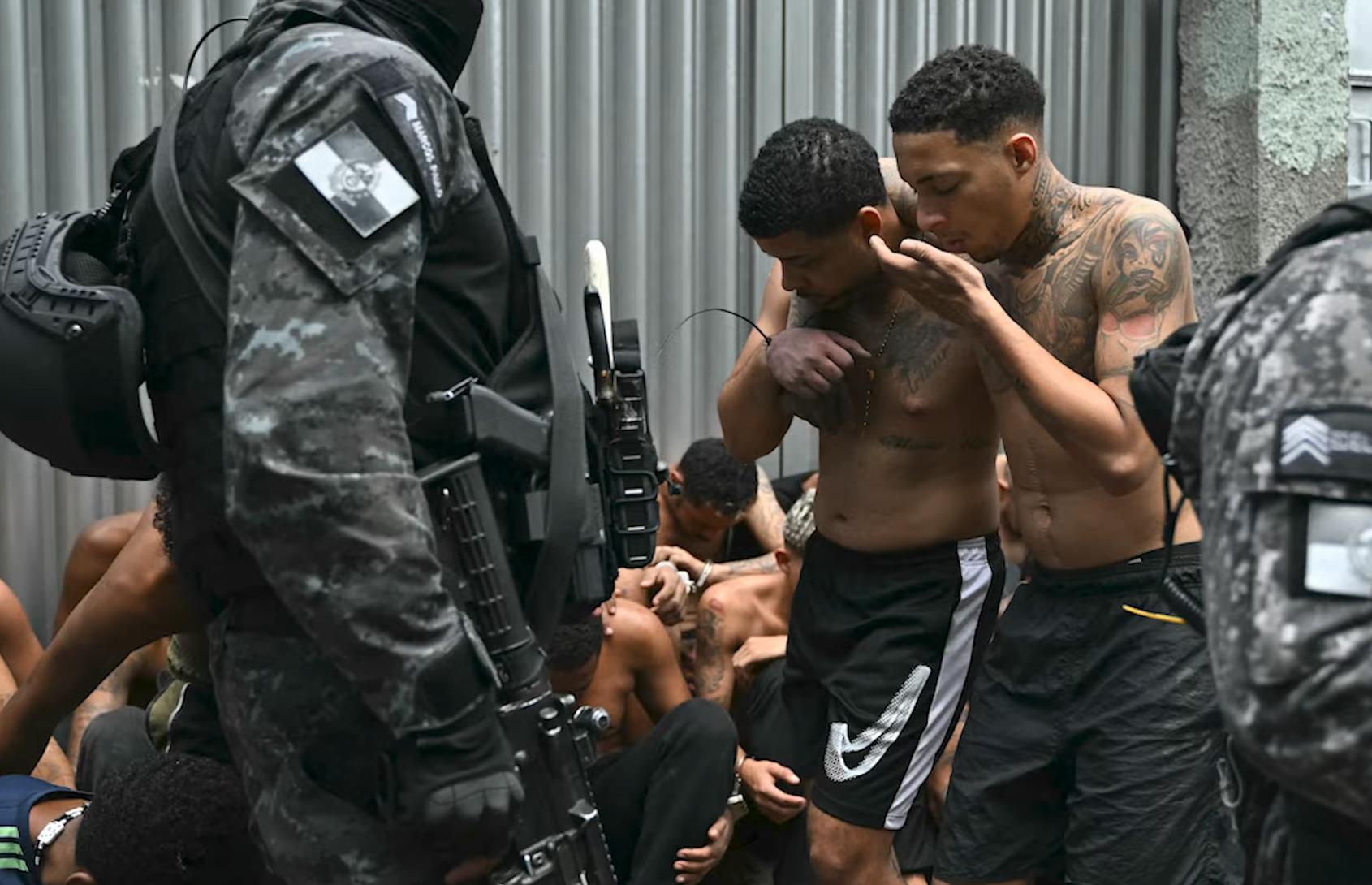
Venezuela: The Cartel of the Suns
Across the border, Venezuela has become a case study in state complicity. The so‑called Cartel of the Suns, allegedly composed of senior military officers, controls trafficking routes, arms smuggling, and illegal mining.
Gold from the Orinoco belt is flown out on clandestine planes, laundered through international markets, and converted into hard currency for a regime under sanctions. Weapons flow in the opposite direction, arming guerrillas in Colombia and gangs in Brazil.
“Here, the state is the cartel,” says a former Venezuelan officer now in exile. “They don’t fight crime—they manage it.”
For ordinary Venezuelans, the result is despair: a collapsing economy, mass migration, and a society where the line between soldier and smuggler has all but disappeared.
Ecuador: A Country on the Edge
Until recently, Ecuador was seen as a relative oasis. No longer. In Guayaquil, the country’s largest port, assassinations of politicians and journalists have become routine. Prisons are controlled by gangs, where massacres leave dozens of dead in gruesome displays of dominance.
Cocaine shipments flow through the docks, bound for Europe. “We used to think this was Colombia’s problem,” says a dockworker. “Now it’s ours.”
The Global Dimension: Demand, Hypocrisy, and Geopolitics
Behind every bullet in a favela and everybody in a Colombian river lies a simple truth: the demand comes from abroad. The United States and Europe remain the largest consumers of cocaine and opioids.
Without their appetite, the cartels would not wield such power. Yet consumer nations often frame the crisis as a foreign problem, ignoring their own complicity.
Hugo Chávez once declared that cocaine could be a weapon against “Yankee imperialism.” His rhetoric was incendiary, but it captured a reality: drugs are not just a commodity—they are a geopolitical tool. Today, fentanyl has become the new battlefield. Chinese chemical companies supply the precursors, Mexican cartels process them, and American families bury their dead.
Some analysts call it the Opium War of the 21st century—a reversal of history where the West now suffers the addiction.
Meanwhile, the financial centers of New York, London, and Zurich quietly launder billions in drug profits. Without these channels, the cartels’ empires would crumble.
Yet international outrage is selective: the UN condemns killings of traffickers in the Caribbean but remains largely silent on mass deaths in Brazilian favelas. The hypocrisy is glaring.
The cocaine routes of the Andes, the fentanyl labs of Mexico, and the gold mines of Venezuela are not isolated crises—they are nodes in a global system. Consumer nations fuel the profits, financial centers launder the money, and international institutions look away. The result: a 21st‑century Opium War with no end in sight.
The Human Cost
The statistics are staggering, but the stories are worse. A mother in Sinaloa who lost her son to cartel recruitment. A Colombian indigenous leader murdered for defending his land. A Brazilian child who sleeps under her bed to avoid stray bullets. A Venezuelan miner coughing up blood from mercury exposure. These are the human faces of a crisis too often reduced to numbers.
Toward a Reckoning
The war on drugs has failed. Militarization has only deepened the violence. What is needed is a reckoning: consumer nations must confront their demand, financial systems must close their doors to dirty money, and regional governments must strengthen institutions rather than outsource security to soldiers.
Without this, the cycle will continue: more raids, more funerals, more silence.
As one Colombian priest put it, standing over the grave of a murdered activist:
“We are burying our future. And the world is watching.”


